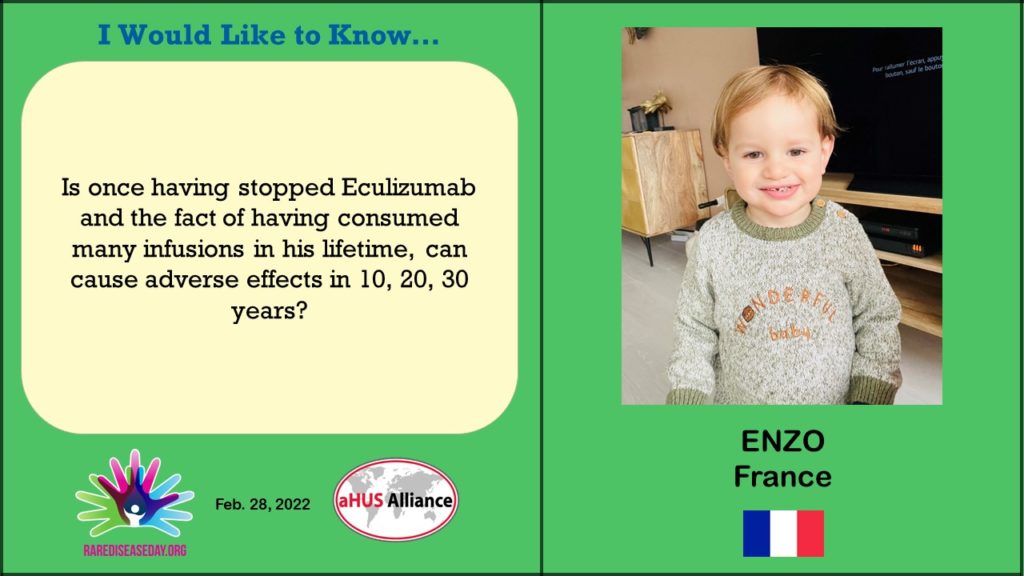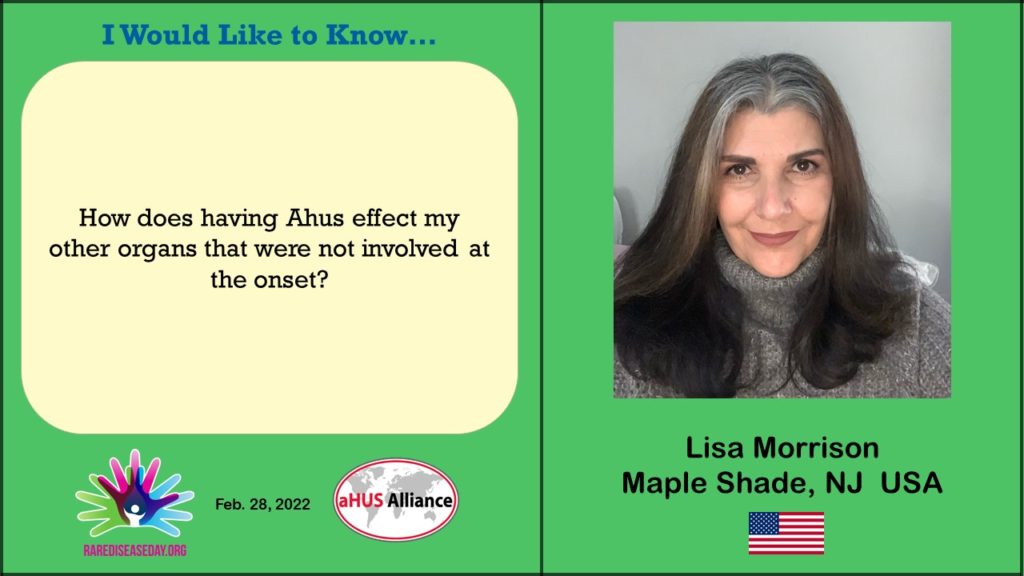A number of questions in the RDD2022 video are about what will happen to patients in the future due to the disease or eculizumab.
Predicting the future is tricky. It tends to leave out that was not expected. 9/11, tsunamis, pandemics, wars. Today we see climate change, more pandemics, asteroid collisions and the ever present nuclear threat.
I am no fortune teller and what I may say anyway will be not remembered by anyone in 30 years time no doubt. Or even 30 days!
Enzo, there are people who have been on eculizumab for 20 years. So they have had many infusions in that time. No specific adverse effects from being treated from length of treatment. Except that eculizumab may not work for some in time, at the dose levels originally prescribed.
There are very few people who have stopped treatment for 10 years and certainly not 30 years ( that would be even before eculizumab was developed!).
Once stopped, the drug can no longer have an effect and clears from the body very quickly . If nothing apparent has been reported from using it up until then, it is very unlikely that something will appear subsequently.
Complement is sometimes bad for aHUS people when it is uncontrolled but complement is also good for what it should be doing.
Blocking it from doing that might have consequences over time . Even beyond aHUS patients being more susceptible to meningitis. These ” known unknowns” stress a need to be cautious, as well as upbeat about something which saved and brought an unexpected quality of life back to many lives.

Enzo
aHUS is an acute condition that can be stopped by eculizumab. If not stopped and it continues it can cause kidney failure and people still have kidney failure and are still dying from the disease. Those in countries without access to eculizumab. Their future looks less rosy.
Those treated effectivelywould no longer have active aHUS. Or a Complement that ticks over like others do but can no longer harm them .

The disease affects organs , or the lining of blood vessels going to the organs, when it is flaring. It take time for any damage to disappear, even the kidney which is the main organ affected can return to higher function after injury. Other than evident heart and brain injury at the time, there could be residual affects which given all that was happening when aHUS was active. But with aHUS stopped it cannot do further damage to them, Lisa . Unless of course eculizumab has not stop any underlying haemolysis.
Patient may go into long term remission, the aHUS train having left the station. You would not be able to pick them out from a crowd of people. They will not look different , their aHUS would not be visible, it is no longer there.
It would not put limitations on what someone wanted to be. New treatments even make longer travel a possibility, Maren

One final word of warning though is best expressed by this extract from a recent article about complement kidney diseases and their treatments. (“The Rationale Use of Complement Inhibitors in Kidney Disease” by Fakhouri et al can (can be read HERE )
The therapeutic revolution because of the introduction of complement inhibitors in clinical practice has, rightly, ignited a great enthusiasm in the community of nephrologists and patients. This enthusiasm has been reinforced by the successful translational research in aHUS that materialized with the design of an efficacious treatment for a devastating disease. Enthusiasm should not however preclude caution and reflection. The activation of the complement system is not necessarily harmful in all settings, and hence complement inhibition is not necessarily beneficial in all conditions. Beyond its obvious anti-infectious properties, the complement cascade is central for the clearance of necrotic, apoptotic, and malignant cells. Inhibition of this beneficial effect of the complement may lead to the persistence of necrotic cells and inflammation, as recently illustrated by the deleterious effect of properdin deficiency in an experimental model of kidney ischemia/reperfusion.67 Furthermore, complement activation is a ubiquitous phenomenon that is usually self-limited and spontaneously resolving. Finally, the old and preserved complement cascade is complex and intuitive approaches to its inhibition may yield surprising and disappointing results. The rational use of the new complement inhibitors should also acknowledge our uncertainties.
Some patients have been using eculizumab for approaching two decades. PNH patients tend to need treatment in middle age and some them are now in the 70s. Soon it should be possible to see whether those with blocked complement are more prone to diseases of old age. Clearly a future topic for research.
Article No. 513

